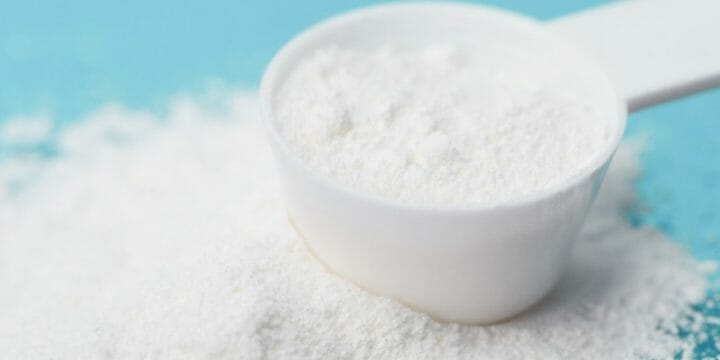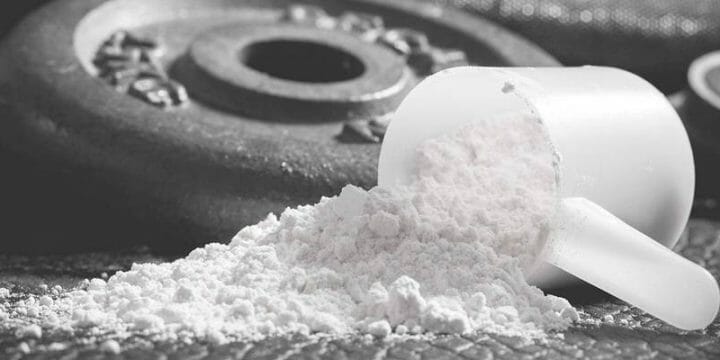The answer to the question of “Do vitamins expire?” and whether you should take vitamins past their expiration date is a little more complicated than a simple yes or no.
They aren’t like food that becomes harmful once expired. Vitamins, however, do degrade and become less effective.
This article will look at vitamins’ shelf life, how to extend it, and what happens when dietary supplements break down.
Quick Summary
- Vitamins do expire and while they're not harmful post-expiration, their effectiveness diminishes over time.
- Different vitamins have varying expiration dates, with factors like form (pill, gummy, etc.) and storage conditions impacting their shelf life.
- The typical shelf life for vitamins is around two years, but this can vary based on the type of vitamin and storage conditions.
- In my view, it's best to avoid taking expired vitamins since they likely won't provide the intended health benefits and could interfere with other medications.
Do Vitamins Expire?

A vitamin's expiration date is more like a "best before" than a "strict no-go." Vitamins and dietary supplements don't turn unsafe like food, but they do lose their punch over time.
Their key ingredients weaken and become less potent after the expiration date.
So, popping expired vitamins might not give you the health boost you're expecting.
What Is The Average Shelf Life For Vitamins?

Unlike prescription drugs or store-bought medication, the food and drug administration doesn’t require vitamins to provide expiration dates by law.
Most reputable supplements will, however, volunteer best before or use by dates themselves anyway.
"The typical shelf life for vitamins is two years. But this can vary, depending on the type of vitamin and the conditions it’s exposed to." - Shilpa Raut, Senior Researcher at Amway
According to the Mayo Clinic, chewable vitamins or gummies absorb more water and degrade faster [1]. In comparison, vitamins in pill form have a more extended expiration date and may last for several years without degradation.
Why Vitamins Expire

As mentioned above, vitamins do not have an expiration date but rather a best before date.
Both water-soluble and fat-soluble vitamins degrade over time, especially when not stored correctly, exposed to moisture or air.
The Vitamin C in a fruit juice, for example, would be virtually all gone after 14 days.
“Vitamins are relatively delicate molecules that do break down with time – some quicker than others,”
- Dr. Sarah Brewer, Medical Director, Healthspan
Other supplements like minerals which are chemical elements, do not expire, so supplements like calcium, iron, or zinc do not break down.
Is Taking Expired Vitamins Safe?

From my own experience, I've taken vitamins a bit past their expiration date and felt fine.
However, I noticed they didn't seem as effective as before. So, while it's safe, I've learned it's better not to rely on expired supplements for optimal health benefits.
So far, no one's gotten seriously sick from expired vitamins.
That's because they aren't toxic when expired; they just lose their effectiveness.
Are There Any Side Effects To Taking Expired Vitamins?
There aren’t any known risks to taking vitamins past expiration, other than them losing potency and not being effective.
If you are taking a health supplement for a particular benefit it provides, then the side effect of expired vitamins might be that you flare up on the issues it was helping to treat.
Interaction with Medications
Expired vitamins may undergo chemical changes, leading to reduced potency or altered composition. When combined with medications, these changes can pose risks or diminish effectiveness.
The expired vitamins may interact with drugs, potentially impacting their absorption, metabolism, or excretion. In some cases, degraded vitamins might produce harmful byproducts.
To mitigate risks, it's crucial to discard expired vitamins and adhere to recommended storage guidelines.
Do Different Vitamins Have Different Expiration Dates?

Different vitamins expire at different times, so don't guess - always check the label.
Water-soluble vitamins and those with special coatings, like chewables or gummies, often expire faster than pill forms.
Before storing a vitamin for later use, make sure to check its expiration date to ensure it's still effective when you need it.
Nutritionist and registered dietitian Melissa Baker, founder of Foodqueries, notes that vitamin shelf life varies by type and brand, typically ranging from 2-3 years.
That's why it's crucial to check both the expiration date and storage conditions to get the most out of your vitamins.
What’s The Best Way To Store Vitamins?

Vitamins typically come in their ideal storage containers, complete with storage instructions.
Keep them in a cool, dry spot away from direct sunlight - a medicine cabinet not in your kitchen or bathroom is ideal, due to less warmth and moisture.
For vitamins like B9 (folic acid), and especially light-sensitive ones like A and D, a cool, dark place is crucial to maintain their potency. Make sure their containers are tightly sealed.
Remember, some supplements, like fish oil, might need refrigeration. Storage needs can vary, so there's no universal rule.
What vitamins should I get?
How Should I Get Rid Of Expired Vitamins?

Don’t just throw away your vitamins that have expired in the trash as they may cause harm. While most vitamins aren’t harmful to you, they may be detrimental to the environment, the water supply, and domestic or wild animals.
Wellness professionals recommend the following three steps to dispose of expired vitamins safely.
- First, mix your vitamins with used cat litter or coffee grounds to discourage any nosy pets, wild animals, or even wild children that may inspect your bin contents.
- Put the mixture in a separately sealed bag or container.
- Chuck the entire container in the trash safe in the knowledge no one will want this foul-smelling bitter bomb.
FAQs
How Long Are Vitamins Good for After the Expiration Date?
Vitamins are good for two years after expiration date, but may be potent over time.
How Long Do Vitamins Last in You?
Viamins last in you for 1-2 days . This implies replenishing them on a regular basis to achieve enough amounts for good health and performance.
References:
- https://www.webmd.com/vitamins-and-supplements/what-to-know-about-gummy-vitamins
About The Author
You May Also Like






